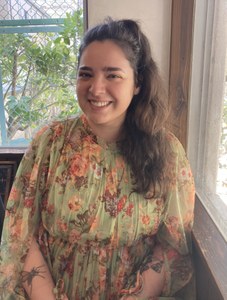Our faculty succeeded in the prestigious Marie Skłodowska-Curie Postdoctoral Fellowship
Information about the project
Akronym: LeishBlock
Title: Exploring an antileishmanial drug toolbox for blocking pathogen transmission in the sand fly vector
Abstract:
The main objective of LEISHBLOCK is identifying antileishmanial compounds exhibiting minimal mortality to sand flies for exploitation as potential transmission blocking agents.
Sand flies are the vectors responsible for transmitting Leishmania parasites, the causative agents of a range of disfiguring to lethal diseases known as leishmaniasis, affecting populations worldwide.
 Dr. Andreia Albuquerque-Wendt, project leader of the LeishBlock projet. Photo: archive of dr. A. Wendt
Dr. Andreia Albuquerque-Wendt, project leader of the LeishBlock projet. Photo: archive of dr. A. Wendt
Currently, with no human vaccines, disease control relies on reducing contact with the vector and chemotherapy. However, the effectiveness of leishmaniasis-vector control, which includes non-specific insecticide spraying, insecticide-impregnated nets, and environmental management, lags behind other disease-vector-control approaches. Moreover, treatment options for leishmaniasis are limited and often require prolonged hospitalization.
To address this pressing public health issue, there is an urgent need to harness existing knowledge on the biology of these parasites, utilize available resources, and explore novel approaches to disease control.
Recently, a promising transmission blocking intervention (TBI) has been pursued for vector-borne diseases like malaria, focusing on targeting parasites within the insect vector with a parasiticide. This innovative approach has demonstrated the potential to become a valuable addition to the arsenal of TBIs and merits attention in the field of leishmaniasis.
Compounds will be firstly screened using sand fly and bee cell lines. Then, the safest compounds will be individually tested on the respective adult insects. The leading compounds demonstrating greater safety will be assessed for their efficacy in reducing parasite burden in Leishmania-infected sand flies, employing an innovative DNA barcoding approach.
The knowledge gained from this multidisciplinary project will contribute to the discovery of urgently needed new drugs to combat this neglected and important emerging vector borne disease, while building on the research profile of the leading investigator.
Information on the type of project and the call in which the project was successful
- The Marie Skłodowska-Curie Postdoctoral Fellowship funds a postdoctoral research fellowship linked to international mobility (the researcher must be working on the grant at an institution in a country other than the one where he/she has worked or studied in the last years prior to the project application).
- In the case of the Global Fellowship sub-type, the project consists of two phases: firstly, the supported researcher completes a 12 to 24 month research fellowship at a host institution in a 'third country' (neither an EU country nor a Horizon Europe associated country), followed by a 12 month 'return' phase during which the supported researcher works on the project at a 'sending institution' in an EU or associated country.
- A total of 1 249 projects were successful in the Marie Skłodowska-Curie Postdoctoral Fellowships 2023 call, of which 139 are Global Fellowships (the rest are European Fellowships).
- From the Czech Republic, a total of 12 projects were successful in this call, of which 3 were Global Fellowships.
Document Actions